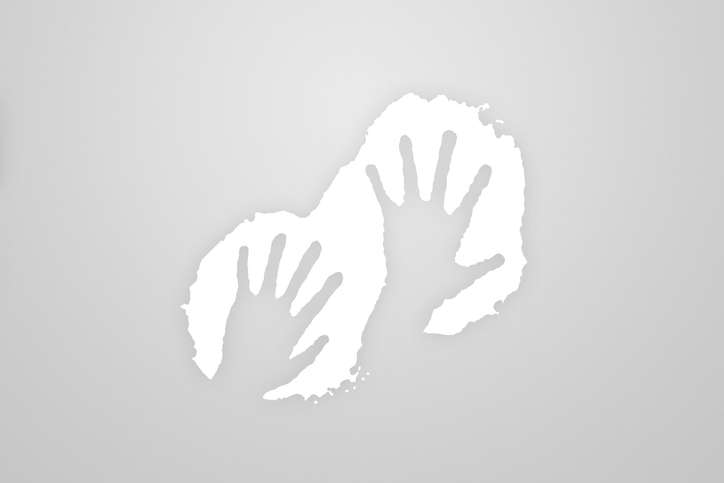A unique online event: A chance to hear some of the Indigenous people and activists fighting the theft of Indigenous lands in the name of “conservation.”
EU Biodiversity Strategy for 2030: What’s in it for Indigenous peoples and local communities?
Watch now:
Take action – and help stop the push for 30%.
Date: 19 November 2020 – 9h-13h Brussels time (CET)
The EU’s 2030 Biodiversity Strategy proposes to turn 30% of Europe’s land and seas into protected areas.
Crucially, the European Commission wants the same target to be adopted around the world at next year’s Convention on Biological Diversity summit.
If that happens, millions of Indigenous and local people will be reduced to landless poverty. It’s the #BigGreenLie
Now, for the first time, Indigenous people and activists will have the chance to tell European policy makers what they think about conservation.
This conference will bring together representatives of Indigenous Peoples and local communities in Africa, Asia and Latin America, NGOs, European Commission officials, and MEPs.
You’re warmly invited to participate. It’s available to everyone: just register here for free, in advance.
If you register, you’ll benefit from simultaneous translation during the webinar, and will also be able to ask questions.
Or if you don’t want to register, watch the event live on Facebook.
And once you’ve heard the arguments, take action – and help stop the push for 30%.
Programme:
Members of the European Parliament (MEPs):
- Michèle Rivasi, Greens/EFA, France
- María Soraya Rodríguez Ramos, Renew Europe, Spain
- Marc Tarabella, S&D, Belgium
NGOs: Docip, Fern, Survival International
9h00-9h30: Introduction
"Opening words"
• Michèle Rivasi, Member of the European Parliament (MEP)
"The invention of green colonialism"
• Guillaume Blanc, Environmental historian, specialist of contemporary Africa and lecturer at University of Rennes 2
9h30 – 10h30: Impact on Indigenous and local communities
Moderation by Marc Tarabella, MEP
Indigenous communities in the Democratic Republic of Congo (DRC)
• Joseph Itongwa, Native Walikale from the province of North Kivu, founder of Réseau des Populations Autochtones et Locales pour la Gestion Durable des Ecosystèmes Forestiers de la RDC (REPALEF) sub-regional coordinator of Réseau des Populations Autochtones et Locales pour la Gestion des Ecosystèmes Forestiers d'Afrique Centrale (REPALEAC), DRC
The riparian populations of Virunga National Park: challenges, limits and future
• Delcasse Lukumbu, Congolese activist and member of Lucha RDC, Congolese citizen movement, DRC
The impact of militarised and undemocratic nature conservation on Indigenous Peoples and forest dwellers in tiger reserves and other protected areas in India
• Pranab Doley, Indigenous activist of the Mising people, Kaziranga, India
Testimonies from Latin America
• Lola Cabnal, Area de Incidencia en Politicas; Asociación Ak Tenamit, Guatemala
How does the European Union ensure respect for Indigenous rights?
• Chiara Adamo, Head of Unit for Gender, Human Rights and Democratic Governance, Directorate-General for International Cooperation and Development, European Commission
10h30 – 11h30: Recommendations and priorities from Indigenous peoples and local communities
Moderation by María Soraya Rodríguez Ramos, MEP
Environment, women's rights and nomadic peoples
• Hindou Oumarou Ibrahim, Association des femmes peules et peuples autochtones du Tchad (AFPAT), Chad
Ending Green Colonialism
• Mordecai Ogada, conservationist, Kenya
Recognition of the customary rights of Indigenous Peoples over Indonesian forests
• Rukka Sombolinggi, Alliance of Indigenous Peoples of the Archipelago (AMAN), Indonesia
Experiences of the round table with experts and representatives of Indigenous Peoples
• Luisa Ragher, Head of Division Human Rights, European External Action Service (EEAS)
11h30 – 12h30: What model for biodiversity?
Moderation by Michèle Rivasi, MEP
Why we must defend the Siberian forest and the rights of the inhabitants of the Far North and East of the country
• Rodion Sulyandziga, Director of the Center for support of Indigenous peoples of the North (CSIPN)
Nature conservation, militarisation and human rights violations: the role of international donors
• Simon Counsell, former director of Rainforest Foundation UK and currently advisor to Survival International
Enhancing the capacities of Indigenous Peoples and Local Communities as stewards of nature
• Herbert Lust, Vice President and Managing Director of Conservation International Europe
Priorities of the EU’s biodiversity strategy at the international level
• Chantal Marijnissen, Head of Unit, Environment, Natural Resources, Water, Directorate-General for International Cooperation and Development, European Commission

